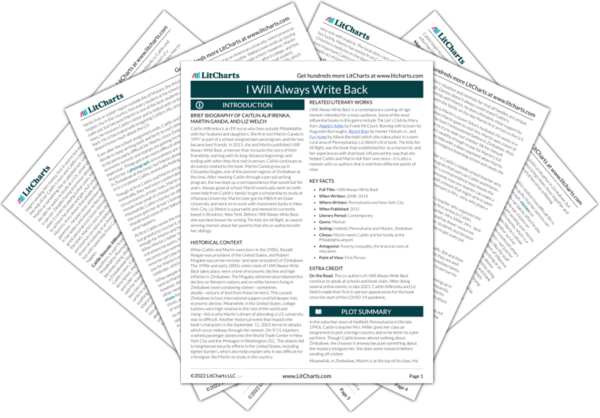In some ways, letters put Caitlin and Martin on equal ground: they are communicating with each other using the same medium. But as this passage shows, things are not so easy for Martin, and behind his letters is a lot of work that isn’t initially visible to Caitlin. At first, she sees just another boy like her who has similar interests. This first impression has truth to it, but it also hides larger truths about Martin, particularly his family’s comparative poverty.
